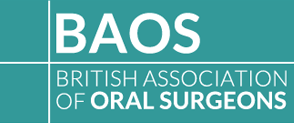Psychological Resilience:
Definition: The ability to mentally or emotionally cope with a crisis, or to return to pre-crisis status quickly
Origin: 1620-30; from resilire (Latin): to spring back, rebound
By Kelly Gillan, BAOS Council Member
As we all know, healthcare provision is a complex system which is regularly beset by challenging scenarios- perhaps never more so than during the COVID-19 pandemic. As healthcare workers, we are expected to have the capacity to absorb negative conditions, effectively manage them and move forward. Psychological resilience is now widely recognised as a key factor in enabling this, and in maintaining a healthy, robust workforce.
Unsurprisingly, individuals with high levels of resilience have been shown to deal better with stressful events. Individually, we do develop strategies that we turn to in times of change or crisis. In addition however, it has been shown that psychological resilience can be augmented through training – available more routinely through Local Deaneries and Trusts. An interesting starting point to this is to measure your own resilience with the “Brief Resilience Scale”. Are you as resilient as you think?
Whilst working within the UDCC in Newcastle Dental Hospital, my colleagues experienced significant daily challenges with outward signs of resilience. A recent anonymised staff survey however highlighted underlying concerns which were previously unvoiced. It is vital to remember the importance of effective conversation in order to gauge anxiety levels within our workforce. In combination with an insight into personal resilience, we may perhaps more effectively deal with future challenges.
References and resources:
N.Adam, CJ Mannion : The ‘R’ word – do dental core trainees possess it; Br J Oral Maxillofac Surg (2020), https://doi.org/10.1016/j.bjoms.2020.04.022
https://www.mind.org.uk/information-support/types-of-mental-health-problems/stress/developing-resilience/
Brief Resilience Scale available at: www.psytoolkit.org

